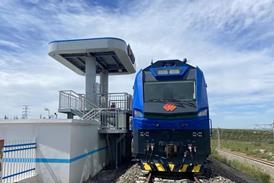Close menu
- Home
- News
- In depth
- Events
- Data
- Maps
- Tenders & Jobs
- Sponsored content
- Insights
Uncertain times in Estonia
By Railway Gazette International2008-09-17T07:00:00
ESTONIA: National rail operator Eestie Raudtee confirmed last month that it planned to split infrastructure management and freight train operations into separate companies with effect from January 1 2009. New subsidiaries EVR Infra and EVR Cargo are to be established, with EVR remaining as a holding company to deal with ...
Already have an account? LOG IN
To continue…
You’ve reached your limit of content for the month
Get enhanced access to Railway Gazette news and weekly newsletters.
Site powered by Webvision Cloud














